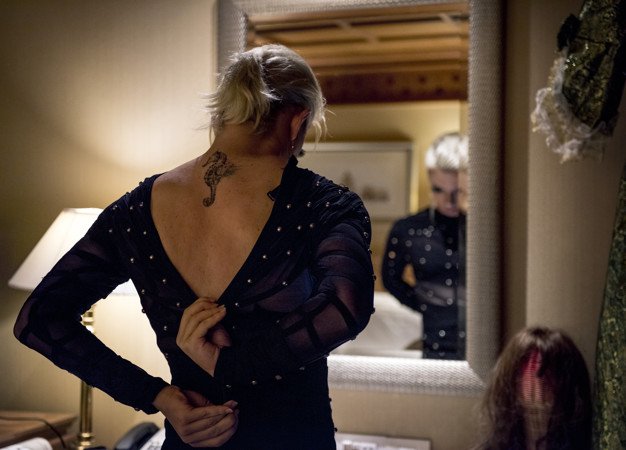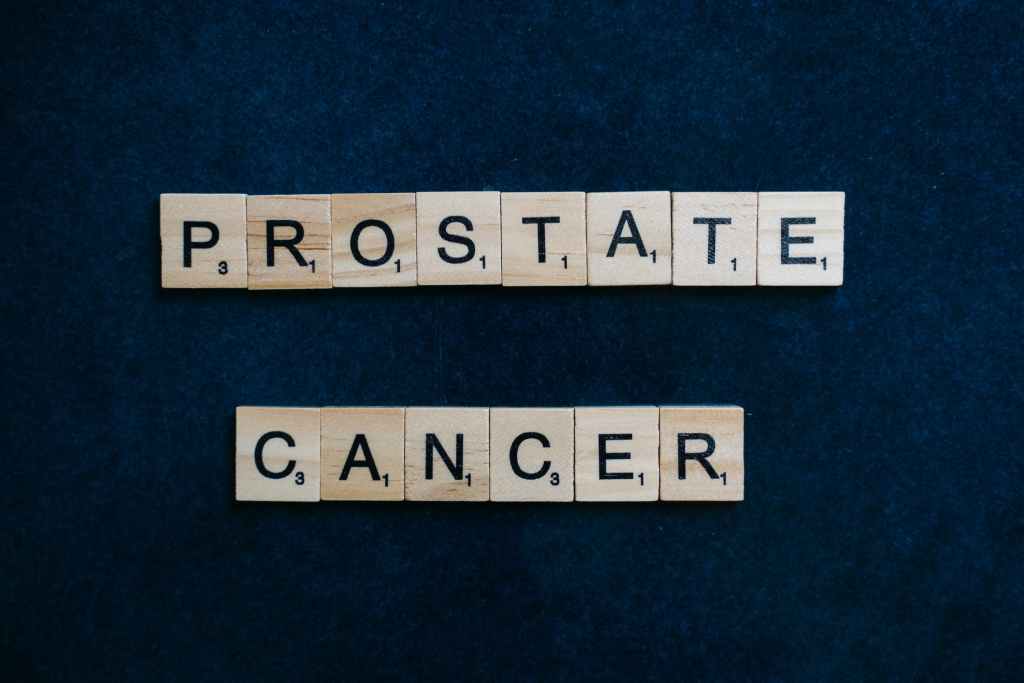‘I’m worthless and I don’t deserve to be alive.’ For two of my most important years in school, I gave up on everything. Depression hit me pretty hard.
Depression isn’t rightly recognised as the complex disease that it is. Most people I spoke to found that they couldn’t explain it well, if at all. I probably wouldn’t have understood it any better if I hadn’t developed depression myself. To an outsider who doesn’t know better, seeing someone depressed for no seemingly perceivable reason may seem strange. Unbelievable even.
For me, the central aspect of being depressed was a mixture of having a completely misaligned perception of myself and having insufficient serotonin (let’s call it the ‘happy chemical’) in my brain.
You could say it made me a lot more susceptible to being sad. It’s like if I were my emotions, I’d be walking along a balancing beam; a slight misstep or a gust of wind could throw me off balance and cause a massive fall.
So when I started to recognise my flaws and realise that I wasn’t as talented, likeable or capable as I initially thought I was, it wrecked me. I didn’t have any love for myself nor did I have a sense of identity anymore. I saw no point in doing almost anything and felt I had no way out of the shroud of inhibiting sadness.
In school, a lot of the conversations revolved around classes, exam results, internal projects and the like. It was commonplace to hear about students not doing homework, not study enough for an exam, or rushing their projects the night before.
These students were the ones who thought they ‘didn’t care enough’. When I heard anything of the sort, I’d think to myself: ‘They think they’re the ones in trouble. But I haven’t even been to class enough to know what’s going on.’
My problems were worlds apart from most of my friends. After a while it became incredible to see how far I’ve fallen. Seeing how little I cared about everything, it seemed so surreal.
On some days I’d tell myself: ‘Alright. My exams are important. My friends are important. I’m going to go to school, learn in class and hang out with my friends. Today is going to be a start of something new. It’s going to be different from now on.’
Usually I don’t even make it halfway through the day before I tell myself ‘I hate myself. I’m incompetent. I don’t even compare to other people who have gone through so much more than I have” which leads me to brood in isolation for days or even weeks before I convince myself to try to make a “new start”.’
I resigned to my emotions because I was tired of repeatedly having hope stripped away from me. It hurt so much to lose hope so I decided not to believe in it to begin with. It seemed like things would never get better, so I lost the point of living.
Life was a real mess. I’d describe the feeling as being in a disgusting pigsty, but not being bothered enough to get up. Although I did have support and medication provided to me, it couldn’t get rid of my depression because I didn’t want to make a change myself. And that’s the tricky thing to treating the illness. Nothing works if you don’t have the willpower to change your own habits. But, the illness itself takes your willpower away. It’s paradoxical.
Therapy and medications can improve the situation, (only if you manage to maintain the determination to get better) but there’s no fixed solution to this harrowing illness. And that’s why, sadly, to those who can no longer live with the melancholy, the only way to relieve themselves of it seems to be suicide.
So what can we do about it?
In my experience, knowing that people care about you keeps that darkness at bay. But here is where social stigma becomes a real problem. To receive support in the first place, to be cared for, you’d have to admit that you’re having a problem. I understand that this can be a very difficult thing to do. There’s a huge deterrent here – the fear of being judged by others and even by yourself.
Often, having these problems is linked to weakness. You don’t want others to see it and you yourself have a hard time accepting it. You may even feel guilty for feeling depressed because some other people have it so much worse, yet they still manage. Your friends and colleagues may try to help cover for your shortcomings that arose from your illness, but it might hurt you even more that you’re troubling other people.
For fear that others might not understand, I kept my issues to myself for the most part. I’ve been told to ‘stop being dramatic’, ‘stop overreacting’or my favourite – ‘just look at things more positively’.
I feel that as someone with depression it’s paramount to try to paint a picture of how you’re feeling to those who care about you. Because depression didn’t only hurt me. It hurts everyone who cared for me too.
Alleviating the prevalence of the illness requires those suffering from the illness to seek help. But for them to be comfortable to look for support, depression needs to be destigmatised and understood.
And that is exactly why the general population needs to know more about it. The most we can do is learn about it, adapt accordingly and most importantly, to be there for them. Make them feel a little bit more understood. Let them know you care.
I’ve seen the illness strip away the lives of people I knew. I’ve seen it take over the lives of my own friends. I’ve been through it myself. I hope that by telling my story, you are able to recognise the gravity of the illness, because I truly don’t believe it’s something we should neglect any longer.
Why I love suffering
If I care about you, I hope you suffer. ‘To those human beings who are of any concern to me I wish suffering, desolation, sickness, ill-treatment, indignities – because I wish them the only thing that can prove today whether one is worth anything or not – that one endures,’ philosopher Friedrich Nietzsche believed.
Blessed with a loving family and comfortable homes, my life was one that could be easily taken for granted. To become someone I believe my past self would be proud of, suffering was really instrumental. What I realise now is that my most painful years gave me something to work for. Being brought down to a low that I have never imagined I would experience, was the most pivotal event of my life.
The ‘toughest’ part of my academic years was zoning out through seven and a half hours of teachers droning about things I could not care less about. I always just managed to scrape by with the little effort that I spared for school.
I had everything that I could reasonably want materially too, but never cared for anything except for what I thought that other people thought of me. In high school, I rarely let my academics ‘sidetrack’ the time I spent with my friends. Then one day, I fell in love.
For the first time, I felt what it was like to love someone, in every way imaginable. I was entirely at the mercy of her feelings. When she decided she no longer loved me, she may as well have shoved the rustiest, bluntest sword right through my heart.
It started with ‘It’s alright. There are other fish in the sea’ in January, but not one week lasted before what I kept telling myself changed to ‘How could she not even care? We were inseparable.’ It was about May when the only thing I told myself was ‘I am worthless. I can’t even get over a rejection.’
One unwilling heartbeat later and I had begun to smoke a pack a day, and on the weekends head to wherever – and with whomever – I could fuel my unrelenting thirst for liquor, so I could pretend for a few hours that I was fine.
The backlash of my emotions didn’t spare my grades or my relationships in the slightest. In spite of the most important exams of my life looming, I chose to give up and detach myself from school as much as possible, and as a result spent more time in detention than in my form class even.
Unsurprisingly, my time in school bore fruit to measly results, paling in comparison to the scores of my friends and classmates who are now in the most prestigious universities around the world.
As a resident of Singapore, two years of my youth were then given to the conscription rule. I was sent to a non-combat unit where, as mentally or physically unfit ‘soldiers’ we were told that we could still make a difference.
Transitioning into my life was unsettling, but it did force me to get out of bed every morning and follow instructions. The freedom from my personal hell of school gave me much needed respite too.
Although I was functional, negativity still fed ravenously on my self-perception. ‘I’m useless. I’ve done nothing in my life I can say I’m truly proud of’, and that would be that, until I decided that one day, it wouldn’t.
Keyboard at my fingertips, I began to type out everything I thought could be meaningful. ‘I know I’m lucky to have grown up comfortably, and I have done nothing to deserve any of it because I’ve never worked hard a single day in my life. What could I do to change that? Maybe I should accomplish something I’ve always wanted to do, and really put in every ounce of my being to committing to it.’
The first challenge I chose to undertake was to finally gain some weight. Having always been skinny, I had been mistaken to be anorexic much more than once.
Two months into my gym routine, my journal entry says this – ‘I asked my imaginary future self how to be more successful, and the likely answer he would give would be to stop being so vulnerable to laziness and procrastination.’
This was written when I gained my first 4kg, and was already 4kg heavier than I had ever been. Whether I was ready for it or half-asleep, I would get my workout done, no matter how long it took. I stuffed myself with mountainous amounts of food, and drink what may as well have been an entire bottle of sugar afterwards, and try to keep thousands of calories from spilling out of my mouth. I had to follow my schedule like my life depended on it, because in a way, it really did.
Within six months, I was only 3kg away from being considered overweight. Seeing my reflection in the mirror was unbelievable even to me. That accomplishment became my springboard to crafting my new identity. Now I had evidence to testify against my former claims that I was worthless.
It gave me solid structure to stand my ground on when my mind acted out. It also left me in search for more challenge. The experience of dedicating myself consistently, every day, towards a long-term goal delineated a profound experience of life. My eyes were opened to the meaning of all the pain and suffering I went through. Essentially it showed me that suffering is a chance for growth, and thus something to look forward to.
Without the recognition of my lack of achievement in my life, without being driven to the depths of darkness, I would not have been able to come close to what I have become, and that is why my worst experience of my life is also my best experience. Suffering gave me an impetus to take life into my own hands; it gave me an empty canvas to build my new identity upon.
***
Image credit: Freepik
Matthew Kaharudin is a student at Diablo Valley College.




























